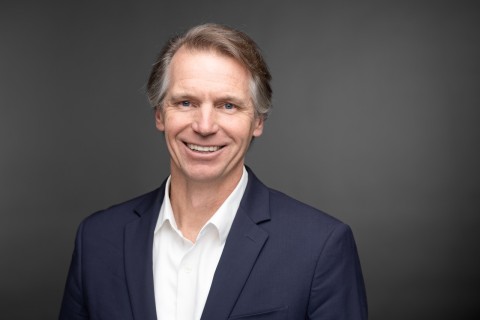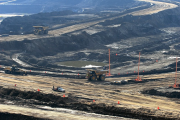So Ralph Klein wants Albertans to keep their noses out of the business of running the province and "especially businesses that want to take risks."
Who does Mr. Klein work for? Does he work for the mostly foreign-controlled companies raking in record profits or for Albertans who have quietly sat back and watched as their return on investment for their oilsands resource has plummeted?

Premier Ralph Klein says no plan is needed for the 141,000 km2 or 21 per cent of Alberta up for grabs by the oilsands industry. We believe he is wrong. Albertans deserve to understand where we are heading and what the benefits and costs will be.
The government seems unwilling to govern Alberta and look after our water, forests, air, and even our social conditions and infrastructure. Yet all of these are suffering under the burden of our over-heated economy, artificially stimulated by the Klein government's incredibly irresponsible fiscal policy that essentially gives away our oilsands resource to the world's largest and most profitable companies.
Oilsands companies pay a one per cent royalty until they recover their costs, and even garner some profit, before Albertans start to get a return for their resource.
The return Albertans get for a barrel of oilsands oil has dropped from $2.90 per barrel in 1997 to just $1.70 per barrel in 2005. While the market value of oil has tripled, the owners (that's us the people of Alberta) profit has dropped by 39 per cent.
Klein insists we do not need to review the royalty formula. Yet according to a recent poll of Mr. Klein's shareholders (the people of Alberta), 84 per cent of Albertans support a public review of the royalty structure. This is why the Pembina Institute remains involved in the public debate and has its nose in Ralph's business.
The same poll by Probe Research shows that 91 per cent of Albertans believe that protecting the environment is important, even if this means oilsands development unfolds more slowly.
Researchers at the Pembina Institute have documented that there are no limits on water use by the oilsands industry, that climate change emissions are escalating out of control with no plan to reduce them and that the industrialization of Alberta's boreal forest is occurring at a rapid pace.
Our most recent report, Death by a Thousand Cuts, written in partnership with the Canadian Parks and Wilderness Society shows that while oilsands mining will affect 3,000 km2, north of Fort McMurray the new deep oilsands (in situ) operations have already secured leases to 35,000 km2 and could affect an area of 138,000 km2 or 21 per cent of Alberta. That's an area the size of Florida.
Pembina's view is different from Ralph Klein's. A responsible government would have a plan for industrial activities that could affect almost one quarter of Alberta.
A regional plan would describe what kind of landscape Albertans will inherit once the oilsands rush is over. It would establish precautionary standards for wildlife habitat, watershed protection, water use and for the release of pollution.
In fact, Pembina believes a government with vision would secure the following three things: a fair share of profits from the publicly owned oilsands, protection of the environment, and a sustainable economy and energy supply for future generations.
Klein has systematically cut the budget to Alberta Environment for the past 10 years. How can the very institution we rely on to protect our environment do its job and meet citizen expectations if it does not have the necessary people and resources?
While oil company profits are soaring, the public is getting less and less value for its resource, and it's being forced to accept increased environmental impacts on the land, water, air and social infrastructure.
The Pembina Institute is calling for a moratorium on the sale of oilsands leases and the approval of further projects until a regional plan that meets and balances the expectations of Albertans is created and implemented.
The citizens of Alberta own a world class resource that requires world class leadership to ensure it is properly managed.
It is time for government leadership that protects the interests of the people by managing this public resource properly with the objective of maximizing the social, environmental and economic profits for all Albertans. And that's everybody's business.
Marlo Raynolds is the executive director of the Pembina Institute and one of the authors of Oilsands Fever: The Environmental Implications of Canada's Oilsands Rush. That and the most recent report Death by a Thousand Cuts: The Impacts of In Situ Oilsands Development on Alberta's Boreal Forest are available from www.pembina.org/oil-sands.
Contact:
Marlo Raynolds, Executive Director
mobile: (403) 607-9427
David Dodge, Communications Director
mobile: (780) 232-6162






